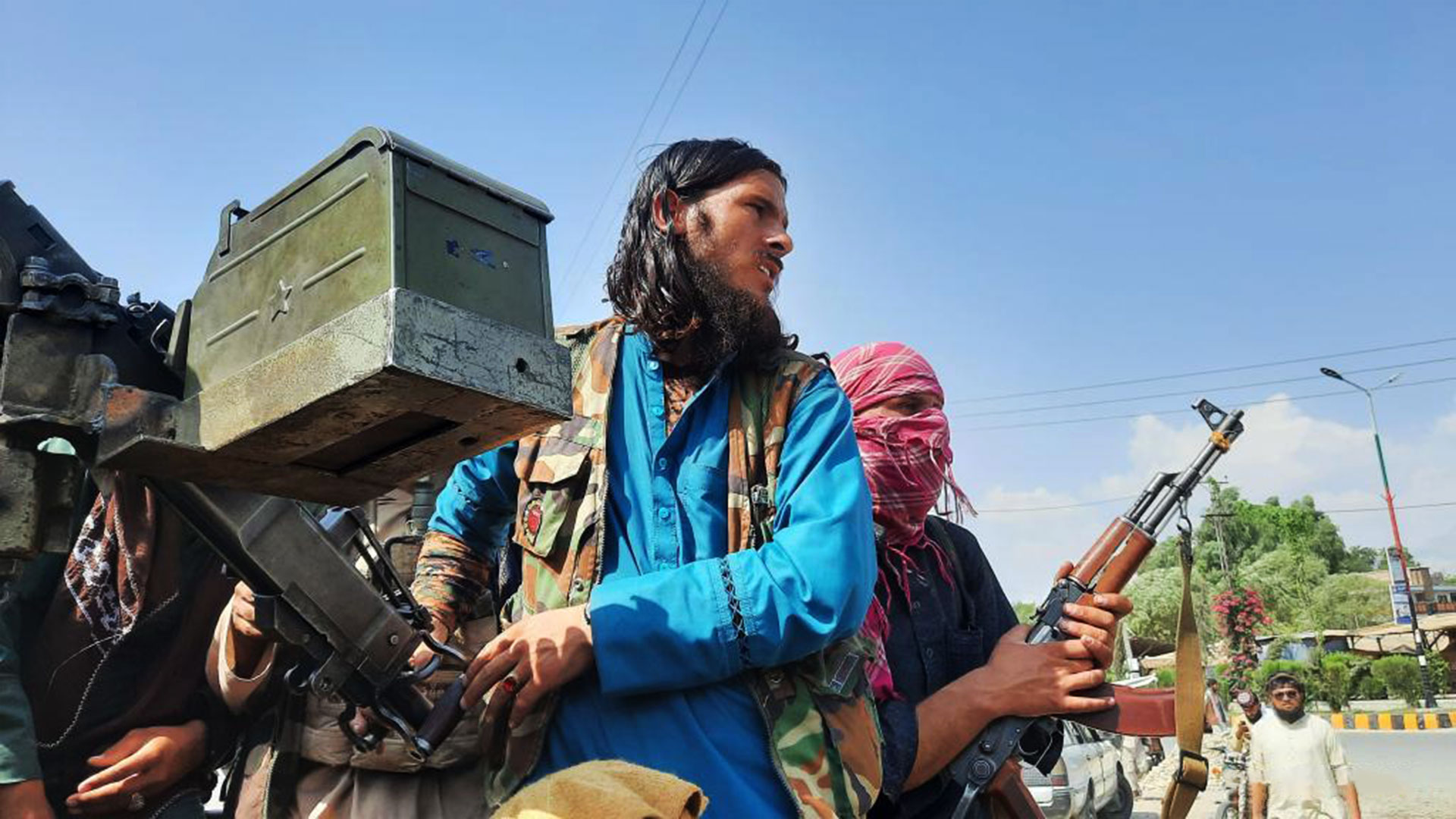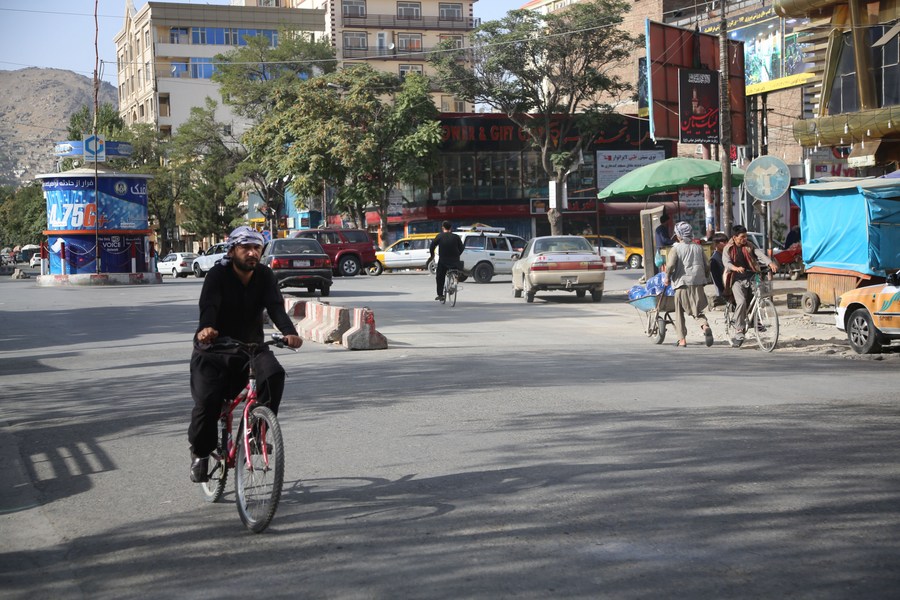
Taliban are seen in Mehtarlam, capital of Laghman province, eastern Afghanistan, August 15, 2021. /Getty
Taliban are seen in Mehtarlam, capital of Laghman province, eastern Afghanistan, August 15, 2021. /Getty
Editor's note: John Gong is a professor at the University of International Business and Economics and a research fellow at the Academy of China Open Economy Studies at UIBE. The article reflects the author's views and not necessarily those of CGTN.
The spectacular collapse of the Ghani government in Afghanistan happened literally within days on the heels of the American withdrawal. That is less than a month away from the 20th anniversary of the 9/11 attack, for which the "Operation Enduring Freedom" was started by the U.S. as a response.
After two decades, having cost $2 trillion and over 2,000 American lives in the so-called never-ending war, now the real ending is indeed unfolding in that Washington is about to create an Afghanistan that has absolutely no freedom, let alone enduring freedom.
The Taliban's sweep of the country is more like a military parade than a real battleground fight. The Ghani government hardly put up a single meaningful fight, though Ghani himself put up a quite impressive oral fight on national TV the day before Kabul was overrun by the Taliban. He then quietly disappeared the next day, and reportedly has already fled to Tajikistan by now.
Such is the travesty of the entire American Afghanistan saga for 20 years. This total fiasco vividly adds one more pathetic chapter to the long list of American foreign policy disasters after the Second World War, again invoking memories of the despicable scenes of the American escape on April 30, 1975 in Saigon.
"Given the 'hasty and irresponsible' withdrawal of U.S. troops from Afghanistan, the United States bears an 'inescapable responsibility' for the current situation in the country and deserves the condemnation of the international community," said Yue Xiaoyong, the special envoy for Afghan affairs of the Chinese Foreign Ministry.

An Afghan man rides bicycle on a road in Kabul, capital of Afghanistan, August 15, 2021. /Xinhua
An Afghan man rides bicycle on a road in Kabul, capital of Afghanistan, August 15, 2021. /Xinhua
The current situation the special envoy refers to is quickly becoming a Taliban Afghanistan again. Even though this generation of Taliban leaders seems to have viewed themselves as different from the Mullah Omar generation that hosted Osama bin Laden, cooperated with al Qaeda, and harbored terrorism, their latest deeds haven't proven that they have been totally transformed.
Al Qaeda's operations are still fairly active along the Afghanistan-Pakistan border. They still ban women from work and from college. They continued to kill innocent people for political revenge, such as the killing of the renowned comedian Nazar Mohammad. They didn't deliver many of the promises to the Americans in the peace talk in Doha. The Taliban political power still appears to be fundamentally a Sharia-abiding theocracy.
From China's perspective, is such a neighbor that we can indeed live with for the future? This is an important question, as it is a practical matter as to whether Beijing should officially recognize the new Taliban political power in Kabul.
What the Chinese government cares most about in its relations with the Taliban is its position with respect to the radical Islamic elements and the Uygur secessionists in Xinjiang Uygur Autonomous Region. During the meeting in Tianjin with the Taliban representatives, Wang Yi specifically mentioned the fact that East Turkistan Islamic Movement (ETIM) has been listed as a terrorist organization by the United Nations Security Council since 2002. The Taliban response was that "it would not allow any organization to use the Afghanistan soil as a base to do things detrimental to China's interest."
The question is, will the Taliban keep their promise? My suggestion is to give them the benefit of the doubt but at the same time be cautious. They appear to be falling short of their promise in some areas to the Americans in the Doha negotiation. For example, the Taliban said they were going to get rid of al Qaeda under their control. They haven't yet.
To such a future neighbor, it's safe to keep a close eye and get prepared. After all, the Americans can head for faraway home albeit with the tail between legs. But China still shares a border with Afghanistan, called the Wakhan Corridor, no matter how inhabitable it is.
(If you want to contribute and have specific expertise, please contact us at opinions@cgtn.com.)

